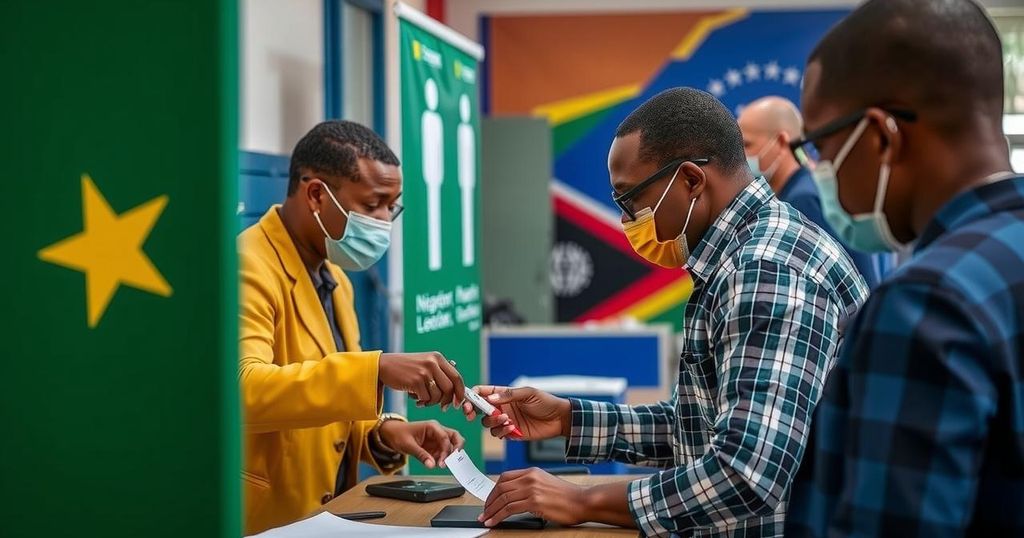Namibia Extends Election Voting Amid Technical Challenges and Opposition Claims

Namibia has extended the voting period for presidential and parliamentary elections due to ballot paper shortages, leading opposition parties to claim the move is illegal. The Electoral Commission cited logistical difficulties causing long lines and frustrations among voters, amidst a broader regional context of electoral scrutiny. Vice President Netumbo Nandi-Ndaitwah’s bid for leadership marks a critical juncture for the country, facing economic and social pressures.
Namibia’s electoral agency has announced an extension of voting for the upcoming presidential and parliamentary elections due to technical difficulties, particularly a shortage of ballot papers. The extension permits voting to continue until Saturday rather than concluding on Wednesday as planned. This decision has drawn criticism from the main opposition party, Independent Patriots for Change, claiming the measure is illegal and raises suspicions of electoral fraud. Meanwhile, long queues and logistical issues at polling stations have left many voters frustrated, questioning the efficiency of the electoral process.
Elsie Nghikembua, chair of the Electoral Commission of Namibia, attributed the decision to logistical challenges faced during the election process. On the ground, voters such as Nangombe Shitaleni expressed their exasperation: “I keep coming to the same place every day without being assisted. It’s like you are a mad person.” As this situation unfolds, voters grow increasingly concerned over their ability to participate in a democratic process that has been historically stable in Namibia.
The electoral complications in Namibia occur amid a backdrop of unrest in neighboring Mozambique, where allegations of electoral fraud have spurred violent protests. This indicates a broader regional context in which established political parties face rising scrutiny and opposition from disillusioned electorates. Namibia’s elections also represent a critical point as Vice President Netumbo Nandi-Ndaitwah, the ruling SWAPO party’s candidate, seeks to become the country’s first female leader.
Despite SWAPO’s historical dominance in Namibian politics since independence in 1990, public dissatisfaction regarding economic conditions and high unemployment, particularly among the youth, poses significant challenges. Voter engagement remains high, with approximately 1.4 million of Namibia’s population registered to vote, indicating a desire for active participation in shaping the nation’s future.
The backdrop of the unfolding electoral scenario in Namibia encompasses a history characterized by colonial rule and apartheid policies. The country has experienced a stable democratic environment since gaining independence from South Africa in 1990. For over three decades, the SWAPO party has governed, but growing discontent fueled by economic disparities and high youth unemployment has surfaced, reflecting a shift in voter sentiment. Recent events in the region, notably Mozambique’s election turmoil, further amplify concerns around electoral integrity and public trust.
In summary, Namibia’s decision to extend voting amid technical issues has sparked allegations of illegality and irregularities from opposition factions, highlighting growing discontent with the electoral process. As significant challenges in logistics arise, the response from voters remains crucial, especially in a nation striving to maintain its reputation as a stable democracy in a region often marred by political unrest. The outcome of this election could pivot the course for the ruling party, given the current social and economic challenges facing Namibian citizens.
Original Source: abcnews.go.com








